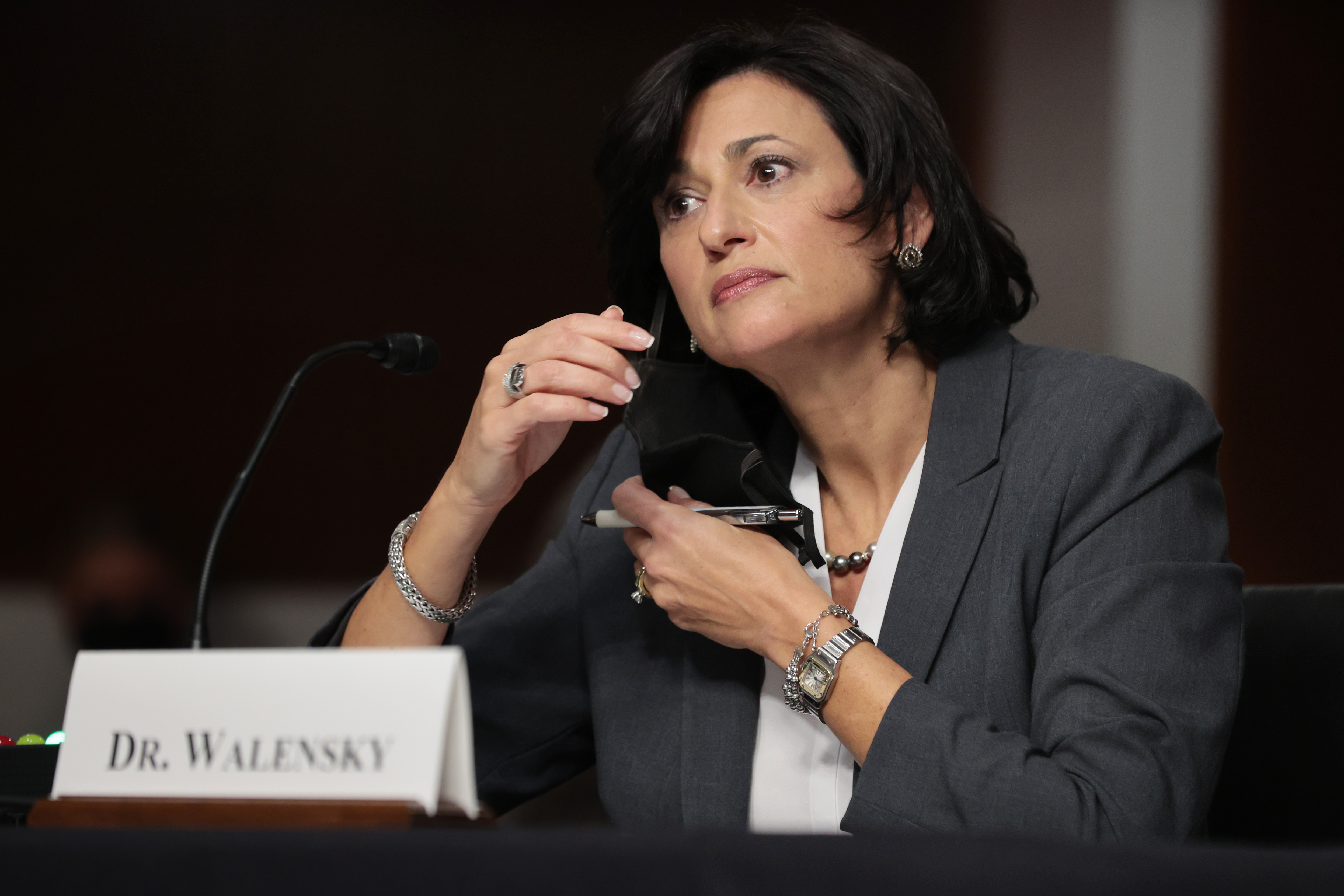In defense of CDC realism


A free daily email with the biggest news stories of the day – and the best features from TheWeek.com
You are now subscribed
Your newsletter sign-up was successful
When President Biden took office, his message was clear: COVID policies would be determined by science, not politics. So imagine the surprise when the head of the Centers for Disease Control and Prevention (CDC) announced other considerations entered into deciding the new guidance on isolation for asymptomatic, COVID-positive people.
"It really had a lot to do with what we thought people would be able to tolerate," CDC Director Rochelle Walensky told CNN Tuesday. The network's Kaitlan Collins replied, "It sounds like this decision had just as much to do with business as it did the science."
Former Surgeon General Jerome Adams, who served in the Trump administration, went a step further. "They wouldn't even follow it for their own family," he said of CDC officials and the revised guidelines.
The Week
Escape your echo chamber. Get the facts behind the news, plus analysis from multiple perspectives.

Sign up for The Week's Free Newsletters
From our morning news briefing to a weekly Good News Newsletter, get the best of The Week delivered directly to your inbox.
From our morning news briefing to a weekly Good News Newsletter, get the best of The Week delivered directly to your inbox.
Perhaps. But realism about how people actually behave should enter into CDC recommendations, as should other considerations that don't strictly involve the virus. Epidemiologists can give sound advice about how to slow the spread of infectious disease. They are not experts in economics or how to organize human society. When their advice doesn't weigh factors too, it is often doomed to fail.
Propagation of the unrealistic idea that people can be isolated and the economy largely shuttered until vaccines and other elements of the pandemic response are perfected has helped undermine confidence in public health experts rather than bolster faith in their directions. The resulting skepticism has increased popular defiance of the CDC and officials like Dr. Anthony Fauci, especially on such matters as masks and vaccines.
In fact, far from being unbiased preachers of the science, public health authorities have always been selective about what they shared with the ordinary citizens to shape public behavior. When they initially claimed masks were ineffective for the general population, for example, they really wanted to prevent shortages for health-care workers.
The motive was understandable, but that was still a lie, and it seriously damaged public trust. It is far better to be as realistic — and candid — as possible from the start. Let's hope this new realism continues even as some try to shame it out of existence.
A free daily email with the biggest news stories of the day – and the best features from TheWeek.com
W. James Antle III is the politics editor of the Washington Examiner, the former editor of The American Conservative, and author of Devouring Freedom: Can Big Government Ever Be Stopped?.
-
 Antonia Romeo and Whitehall’s women problem
Antonia Romeo and Whitehall’s women problemThe Explainer Before her appointment as cabinet secretary, commentators said hostile briefings and vetting concerns were evidence of ‘sexist, misogynistic culture’ in No. 10
-
 Local elections 2026: where are they and who is expected to win?
Local elections 2026: where are they and who is expected to win?The Explainer Labour is braced for heavy losses and U-turn on postponing some council elections hasn’t helped the party’s prospects
-
 6 of the world’s most accessible destinations
6 of the world’s most accessible destinationsThe Week Recommends Experience all of Berlin, Singapore and Sydney
-
 Big-time money squabbles: the conflict over California’s proposed billionaire tax
Big-time money squabbles: the conflict over California’s proposed billionaire taxTalking Points Californians worth more than $1.1 billion would pay a one-time 5% tax
-
 Did Alex Pretti’s killing open a GOP rift on guns?
Did Alex Pretti’s killing open a GOP rift on guns?Talking Points Second Amendment groups push back on the White House narrative
-
 Washington grapples with ICE’s growing footprint — and future
Washington grapples with ICE’s growing footprint — and futureTALKING POINTS The deadly provocations of federal officers in Minnesota have put ICE back in the national spotlight
-
 Trump’s Greenland ambitions push NATO to the edge
Trump’s Greenland ambitions push NATO to the edgeTalking Points The military alliance is facing its worst-ever crisis
-
 Why is Trump threatening defense firms?
Why is Trump threatening defense firms?Talking Points CEO pay and stock buybacks will be restricted
-
 The billionaires’ wealth tax: a catastrophe for California?
The billionaires’ wealth tax: a catastrophe for California?Talking Point Peter Thiel and Larry Page preparing to change state residency
-
 Trump considers giving Ukraine a security guarantee
Trump considers giving Ukraine a security guaranteeTalking Points Zelenskyy says it is a requirement for peace. Will Putin go along?
-
 Bari Weiss’ ‘60 Minutes’ scandal is about more than one report
Bari Weiss’ ‘60 Minutes’ scandal is about more than one reportIN THE SPOTLIGHT By blocking an approved segment on a controversial prison holding US deportees in El Salvador, the editor-in-chief of CBS News has become the main story
